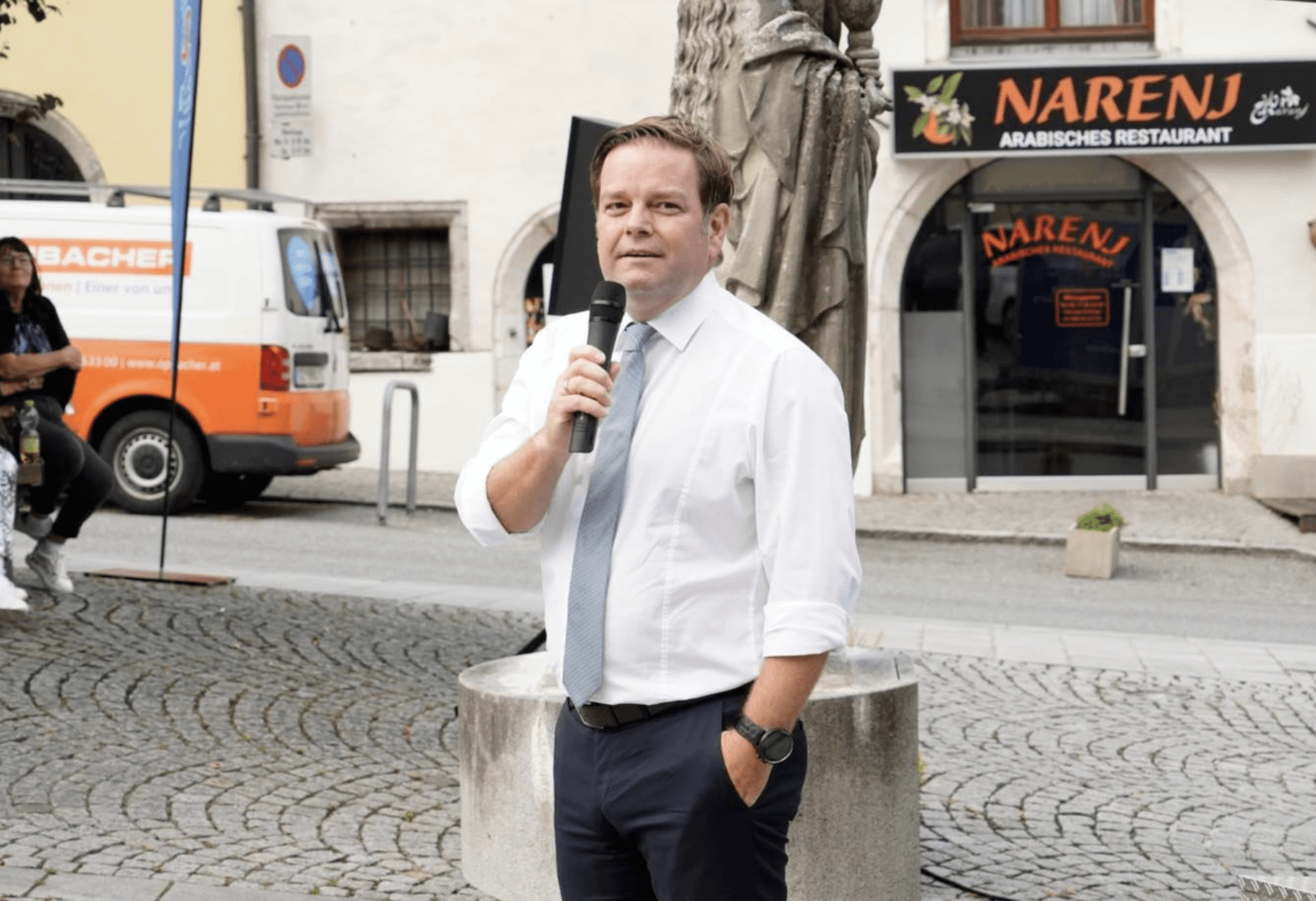
Ahead of state elections this weekend—and with over 56,000 people having applied for asylum in Austria between January and August, the highest number recorded since the migrant crisis of 2015—the leader of the national-conservative Freiheitliche Partei Österreichs (FPÖ) for the state of Tyrol has called for a remigration minister to address the problem.
In an interview with the bimonthly news magazine InfoDirekt, Markus Abwerzger, the president of the FPÖ in Tyrol, argued that, in light of the ever-increasing proportion of illegal migrants present in Austria’s schools, prisons, and cities, government ministries must be established to oversee and ensure repatriations take place.
All one must do is to “walk through the cities” with their “eyes and ears open” to realize that “Islamization is omnipresent,” Abwerzger said, noting that “in some parts of the city one hardly hears a word of German.”
“A look at the prisons or the crime statistics is enough to realize this insight,” the state FPÖ chief added.
Furthermore, Abwerzge continued, one need not look any further than to schoolyard demography to see “where the influx of foreigners will lead to in two generations.”
The statistics speak for themselves. Demographic developments are more than worrying. Over a fifth of the people living in Tyrol already have a migration background. In the cities, the ratio is even more dramatic. However, it is not only Tyrol that needs the Provincial Council for Remigration and Repatriation, but actually almost all western countries.
Later on in the interview, while admitting that the federal ministry charged with managing repatriations would be much preferable to a state council doing the same thing, he said it”does not do any harm if pressure comes from the federal states to make the federal government take action.”
When asked to what extent state governments have the powers needed to stop the ongoing population exchange, Abwerzge replied:
What a state government can do is make a state attractive for people to move to, or do the opposite. The signal that would be sent out by installing a remigration council should certainly not be underestimated. Word would certainly get around quickly if Tyrol was no longer the asylum and migration paradise that it became under Black and Green. Under Interior Minister Herbert Kickl, not only did the number of deportations increase, but the number of new arrivals also fell drastically, because the signal “NO WAY” was sent out unequivocally.
Similar to Switzerland, one could also create financial incentives for remigration. There are no limits to the imagination. You just have to be creative. Of course, there is hope that a positive example will inspire and the concept will then catch on. In any case, it’s still not too late, even if time is against us.
In conclusion, Abwerzge spoke to Tyroleans directly, telling them that whether a Provincial Council for Remigration and Repatriation becomes a reality is entirely in their hands, in the state election on September 25th.
Only a strong FPÖ can make this happen. We have to become strong enough so that people cannot get past us. Hopefully, that would also mean a change in the ÖVP that would help conservative forces in the party take the helm and open the way for a coalition.
